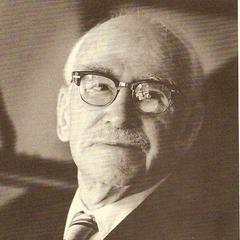David Hume Quotes - Page 6

In this sullen apathy neither true wisdom nor true happiness can be found.
David Hume (1870). “Essays, Literary, Moral, and Political”, p.88
The richest genius, like the most fertile soil, when uncultivated, shoots up into the rankest weeds.
David Hume (2016). “Delphi Complete Works of David Hume (Illustrated)”, p.664, Delphi Classics
David Hume (2006). “Essays: Moral, Political and Literary”, p.561, Cosimo, Inc.
A Treatise upon Human Nature bk. 3 (1739)
David Hume (2006). “An Inquiry Concerning the Principles of Morals”, p.48, Cosimo, Inc.
David Hume (2016). “Delphi Complete Works of David Hume (Illustrated)”, p.651, Delphi Classics
An Enquiry Concerning Human Understanding Section IV (p. 35)
David Hume (1758). “Essays and Treatises on several subjects, etc. New edition”, p.207
David Hume (2016). “Delphi Complete Works of David Hume (Illustrated)”, p.1189, Delphi Classics
David Hume (2016). “Delphi Complete Works of David Hume (Illustrated)”, p.579, Delphi Classics
David Hume (1875). “Essays Moral, Political, and Literary”, p.149
David Hume (1957). “The Natural History of Religion”, p.29, Stanford University Press
An Enquiry Concerning Human Understanding "Of Miracles" (1748)
David Hume (1826). “The Philosophical Works: Including All the Essays, and Exhibiting the More Important Alterations and Corrections in the Successive Ed. Publ. by the Author”, p.548
David Hume (2016). “Delphi Complete Works of David Hume (Illustrated)”, p.521, Delphi Classics
'Essays, Moral, Political, and Literary' (ed. T. H. Green and T. H. Grose, 1875) 'Of the Standard of Taste' (1757)
David Hume, Tom L. Beauchamp (2007). “A Dissertation on the Passions: The Natural History of Religion : a Critical Edition”, p.112, Oxford University Press
David Hume, Eric Steinberg (1993). “An Enquiry Concerning Human Understanding ; [with] A Letter from a Gentleman to His Friend in Edinburgh ; [and] An Abstract of a Treatise of Human Nature”, p.29, Hackett Publishing
David Hume (2016). “Delphi Complete Works of David Hume (Illustrated)”, p.522, Delphi Classics
David Hume (2016). “Delphi Complete Works of David Hume (Illustrated)”, p.683, Delphi Classics
1739 A Treatise of Human Nature, bk.1, pt.2, section 6.
David Hume (1772). “An inquiry concerning human understanding. A dissertation on the passions. An. inquiry concerning the principles of morals. The natural history of religion”, p.5






